
The World Economic Forum (WEF) is an international advocacy non-governmental organization and think tank, based in Cologny, Canton of Geneva, Switzerland. It was founded on 24 January 1971 by German engineer Klaus Schwab.
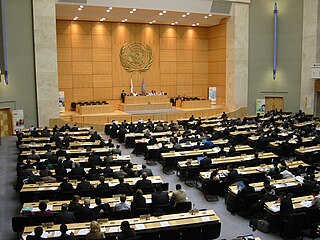
The World Summit on the Information Society (WSIS) was a two-phase United Nations-sponsored summit on information, communication and, in broad terms, the information society that took place in 2003 in Geneva and in 2005 in Tunis. WSIS Forums have taken place periodically since then. One of the Summit's chief aims is to bridge the global digital divide separating rich countries from poor countries by increasing internet accessibility in the developing world. The conferences established 17 May as World Information Society Day.
Governance is the overall complex system or framework of processes, functions, structures, rules, laws and norms born out of the relationships, interactions, powerdynamics, cultures and communication within an organized group of individuals which not only sets the boundaries of acceptable conduct and practices of different actors of the group and controls their decision-making processes through the creation and enforcement of rules and guidelines, but also manages, allocates and mobilizes relevant resources and capacities of different members and sets the overall direction of the group in order to effectively address its specific collective needs, problems and challenges. The concept of governance can be applied to social, political or economic entities such as a state and its government, a governed territory, a society, a community, a social group, a formal or informal organization, a corporation, a non-governmental organization, a non-profit organization, a project team, a market, a network or even the global stage. "Governance" can also pertain to a specific sector of activities such as land, environment, health, internet, security, etc. The degree of formality in governance depends on the internal rules of a given entity and its external interactions with similar entities. As such, governance may take many forms, driven by many different motivations and with many different results.
Technology governance means the governance, i.e., the steering between the different sectors—state, business, and NGOs—of the development of technology. It is the idea of governance within technology and its use, as well as the practices behind them. The concept is based on the notion of innovation and of techno-economic paradigm shifts according to the theories by scholars such as Joseph A. Schumpeter, Christopher Freeman, and Carlota Perez.
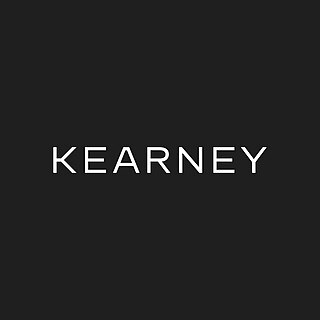
Kearney is an American global management consulting firm with offices in more than 40 countries worldwide. Kearney's predecessor firm was founded in Chicago by James O. McKinsey in 1926; he hired Andrew Thomas "Tom" Kearney as his first partner in 1929. After James McKinsey died in 1937, the Chicago office split into its own company, led by Tom Kearney and called McKinsey, A.T. Kearney, and Company. In 1947, it was renamed A.T. Kearney and Company.

Internet governance consists of a system of laws, rules, policies and practices that dictate how its board members manage and oversee the affairs of any internet related-regulatory body. This article describes how the Internet was and is currently governed, some inherent controversies, and ongoing debates regarding how and why the Internet should or should not be governed in the future.

The Internet Governance Forum (IGF) is a multistakeholder governance group for policy dialogue on issues of Internet governance. It brings together all stakeholders in the Internet governance debate, whether they represent governments, the private sector or civil society, including the technical and academic community, on an equal basis and through an open and inclusive process. The establishment of the IGF was formally announced by the United Nations Secretary-General in July 2006. It was first convened in October–November 2006 and has held an annual meeting since then.
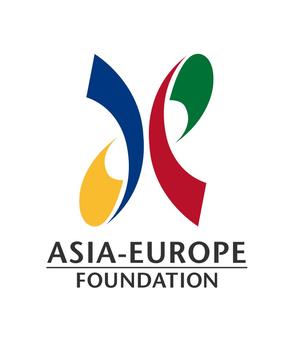
The Asia–Europe Foundation (ASEF) is an intergovernmental not-for-profit organization located in Singapore. Founded in 1997, it is the only institution of the Asia-Europe Meeting (ASEM). Its purpose is to promote mutual understanding and cooperation between the people of Asia and Europe through intellectual, cultural, and people-to-people exchanges.
Due to the near-universal desire for safe, effective, and high quality healthcare, there is a growing interest in international healthcare accreditation. Providing healthcare, especially of an adequate standard, is a complex and challenging process. Healthcare is a vital and pervasive issue; it influences all aspects of societies. It has medical, social, political, ethical, business, and financial ramifications. In any part of the world healthcare services can be provided either by the public sector or by the private sector, or by a combination of the two. Healthcare can be provided in hospitals or be accessed through practitioners working in the community, such as general medical practitioners and dental surgeons.
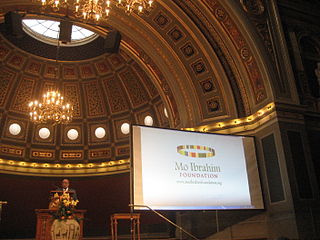
The Mo Ibrahim Foundation is an African non-grant foundation founded in 2006 by businessman Mo Ibrahim. Headquartered in London and Dakar, Senegal, it works to strengthen governance and leadership in Africa through its key initiatives:
The Lee Kuan Yew School of Public Policy is an autonomous postgraduate school of the National University of Singapore (NUS), named after the late former Prime Minister of Singapore, Lee Kuan Yew.

The Public Policy Forum (PPF) is an independent, non-profit Canadian think tank for public-private dialogue. The organization's stated vision is "good policy for a better Canada, where everyone has an opportunity to flourish individually and together"
Multistakeholder governance is a practice of governance that employs bringing multiple stakeholders together to participate in dialogue, decision making, and implementation of responses to jointly perceived problems. The principle behind such a structure is that if enough input is provided by multiple types of actors involved in a question, the eventual consensual decision gains more legitimacy, and can be more effectively implemented than a traditional state-based response. While the evolution of multistakeholder governance is occurring principally at the international level, public-private partnerships (PPPs) are domestic analogues.
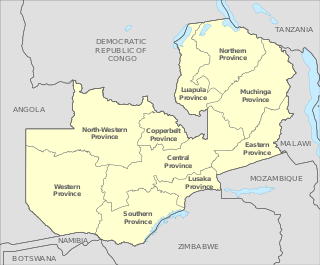
Mass media in Zambia consist of several different types of communications media: television, radio, cinema, newspapers, magazines, and Internet-based Web sites. The Ministry of Information, Broadcasting Services and Tourism is in charge of the Zambian News Agency which was founded in 1969. Due to the decolonization of the country, it ultimately allowed the media sector of the country to flourish, and enabled the establishment of multiple different new outlets, as well as established a new news consumption culture that wasn't previously known to Zambia. Furthermore, due to the short-wave capabilities, and international increase in production, demand, and sales of the transistor-radios in the country it made it increasingly more difficult to control the media outlets throughout Zambia by the leaders of the government.

Joseph Robert Swedish is an American healthcare executive and leader. He is a former senior adviser to the board of directors at Anthem, Inc., a Fortune 29 company, and was the CEO of Anthem, Inc. from 2013 to 2017. For 12 years in a row Swedish was named Modern Healthcare’s one of the 100 Most Influential People in Healthcare.
Elizabeth Howe Bradley is the eleventh President of Vassar College, a role she assumed on July 1, 2017. Bradley also holds a joint appointment as Professor of Political Science and Professor of Science, Technology, and Society.
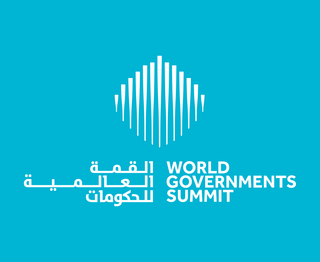
The World Governments Summit is an annual event held in Dubai, United Arab Emirates. It brings together leaders in government for a global dialogue with a focus on the issues of futurism, technology innovation and other topics. The summit acts as a knowledge exchange hub between government officials, thought leaders, policy makers and private sector leaders to discuss future trends, issues and opportunities facing humanity. The summit hosts over 90 speakers from 150 participating countries, along with over 4000 attendees.
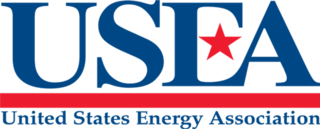
The United States Energy Association (USEA) is an association of public and private energy-related organizations, corporations, nonprofits, educational institutions, think tanks and government agencies. USEA works with the U. S. Department of Energy, U.S. Department of State and the U.S. Agency for International Development (USAID) to make energy accessible throughout the world by focusing on the viability of electricity, coal, oil, gas, nuclear and renewables. The organization also serves as a resource for the domestic and global energy industry, hosting a variety of events year-round that inform on current energy policy, challenges and technologies. Through its member organizations, USEA shares energy best practices, executes projects, and coordinates research domestically and internationally.
Sustainable Development Goals and Lebanon explains major contributions launched in Lebanon towards the advancement of the Sustainable Development Goals SDGs and the 2030 agenda.
Fadi Farra is a Lebanese and French scientist, author, and founder of Whiteshield Partners. Over his 20-year career, Farra has worked on industrial and innovation policies, microeconomics, and private sector development. His previous roles include working as a head of unit at the Organisation for Economic Cooperation and Development (OECD) in Paris, and as a strategy consultant with firms like Boston Consulting Group and AT Kearney.












